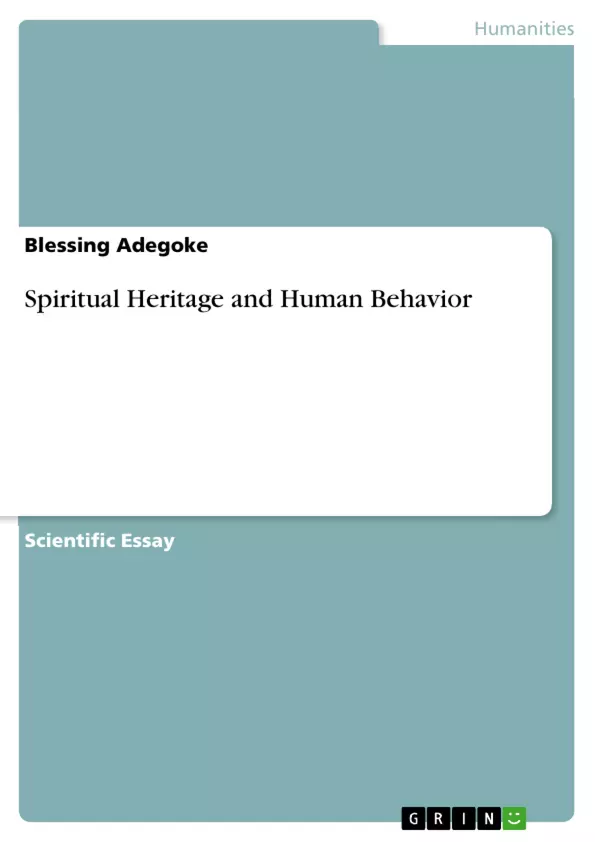Politics is like a war in the Nigerian context, especially among the Yoruba. It is a battlefield for leadership positions and powers. In the old Oyo, the war-chief or the field marshal was known as Aare Ona Kakanfo. This chieftaincy was neither hereditary nor honorary, but was conferred by the Alaafin of Oyo on his best soldier, the most powerful one who had the record of winning several battles and was greatly influential among his subjects. According to the myth of the Aare Ona Kakanfo, the Kakanfo feared no foes or friends; he did not even fear the King who conferred the title on him. According to the initiation into this office, the occupant of the title would shave his head completely and there would be 201 incisions on his head, rubbed with concoction prepared with 201 viols on each of the incisions. This would make him not only bold and courageous to face any battle but also prone to warfare with the determination of winning the battle
Table of Contents
- Introduction
- Political Behavior
- The Myth of Aare Ona Kakanfo
- The Myth of Creation and Women's Role in Politics
- The Myth of Oluorogbo
- The Myth of Obasanjo as Messiah
- Economic Behavior
- The Prohibition of Killing Snakes
- The Belief in Spiritual Forces for Economic Success
- White Magic and Blood Money
Objectives and Key Themes
This research examines the impact of spiritual heritage on human behavior in Nigeria. The study focuses on four key areas: political, economic, social, and religious behavior. It utilizes newspaper and magazine articles as primary sources, providing insights into societal practices and beliefs.
- The influence of spiritual heritage on political leadership and practices.
- The role of traditional beliefs in shaping economic behavior, particularly in relation to wealth and prosperity.
- The interplay of traditional beliefs and contemporary social issues.
- The impact of spiritual heritage on religious practices and the evolution of religious beliefs in Nigeria.
Chapter Summaries
The Introduction lays out the research framework, highlighting the use of newspapers and magazines as crucial sources for understanding social behavior in Nigeria. It emphasizes the importance of authenticity and the researcher's careful selection of materials.
The section on Political Behavior explores the myth of Aare Ona Kakanfo, a powerful warrior chieftaincy in Yoruba culture. The myth emphasizes the warrior's unwavering commitment to victory or death in battle, influencing the behavior of past Aare Ona Kakanfo, including Chief S. L. Akintola and Chief M. K. O. Abiola. The chapter further examines the role of women in Yoruba politics through the myth of creation and the myth of Oluorogbo, highlighting women's ability to wield power and influence, even within a patriarchal society. Finally, it delves into the political myth surrounding former President Olusegun Obasanjo, exploring the Pentecostal interpretation of his rise to power.
The section on Economic Behavior focuses on the Yoruba belief that certain animals, such as snakes, are forbidden to be killed. The myth, rooted in ancestral reverence, emphasizes the link between adherence to traditional beliefs and economic prosperity. The chapter then explores the wider belief in spiritual forces influencing wealth and poverty, referencing Howell's and Senavoe's perspectives on poverty in Africa. It concludes with a discussion of the practice of blood money and its implications for economic behaviors in Nigeria, citing examples of missing persons and the societal consequences of this practice.
Keywords
This research focuses on the intersection of spiritual heritage and human behavior in Nigeria. Key terms include: spiritual heritage, political behavior, economic behavior, traditional beliefs, mythology, Aare Ona Kakanfo, Yoruba culture, blood money, poverty, wealth, religious practices, and contemporary social issues.
Frequently Asked Questions
What is the significance of the "Aare Ona Kakanfo" title?
In Yoruba culture, it is the title of the field marshal or war-chief. The title holder is known for extreme bravery and is spiritually prepared to never fear foes or even the King.
How does spiritual heritage influence Nigerian politics?
Spiritual myths and traditional chieftaincies shape leadership styles and the perception of political power, as seen in the examples of figures like Chief M. K. O. Abiola or former President Obasanjo.
What is the Yoruba belief regarding snakes and economic success?
There is a traditional prohibition against killing certain snakes, rooted in ancestral reverence, with the belief that adhering to this tradition brings economic prosperity.
What role do women play in Yoruba politics according to myth?
Through myths like the creation story and the story of Oluorogbo, it is shown that women have historically wielded significant power and influence even within patriarchal structures.
What is "blood money" in the context of Nigerian economic behavior?
It refers to the illegal and ritualistic practice of using spiritual forces (often involving human sacrifice) to attain wealth, which has serious social and economic consequences in Nigeria.
- Arbeit zitieren
- Blessing Adegoke (Autor:in), 2012, Spiritual Heritage and Human Behavior, München, GRIN Verlag, https://www.grin.com/document/195334



